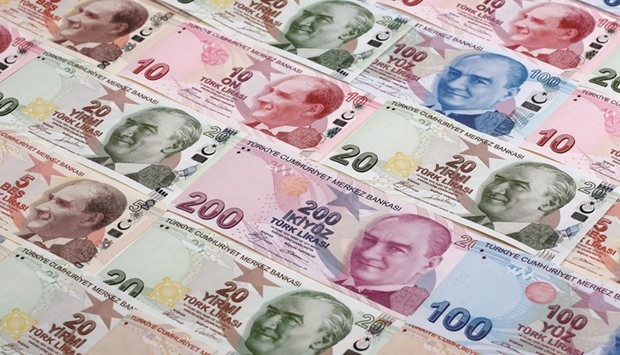Turkey’s central bank said it will allow companies to use liras to repay export loans, the latest in a series of steps meant to improve foreign-exchange liquidity and bolster the local currency.
Companies will also be able to use the central bank’s January 2 foreign-exchange purchase rates to pay off so-called rediscount loans maturing by May 31, the bank said in a statement yesterday. The lira traded at 3.5338 per dollar and 3.7086 per euro that day, according to the rates on the bank’s website, compared with 3.6715 and 3.9119 respectively yesterday.
Turkey’s regulator has been rolling out extraordinary measures since the beginning of the year as it tries to support the lira, which has recovered from record lows following a 17% drop in 2016. They’ve included using swaps to smooth volatility and forcing lenders to borrow via a little-used interest rate to increase costs, and while the bank also raised a key rate last month, it has said the unorthodox measures will continue.
The new policy will boost foreign-exchange liquidity by removing the need for companies to convert liras to foreign currencies to repay their loans, while also giving firms holding dollars or euros, for example, the option to buy liras to pay back debt, according to a person with direct knowledge of central bank policy, who asked not to be named because the information
wasn’t public.
“We saw a serious demand for dollars from the corporate sector late last year which resulted in the lira’s depreciation,” Bora Bocugoz, executive vice president for Treasury and Financial Institutions at Denizbank AS in Istanbul, said by phone. “An important part of that demand will now have been removed from the market.”
The central bank was expecting to collect about $4.5bn in repayments of rediscount loans from March to May, according to a document on its website, with another $1.2bn to be paid in February – though it’s not clear how much it has received. Without the measure announced yesterday, the bank could have used the repayments to build up its own foreign-exchange reserves.
Rediscount loans, which are limited to a total of $20bn, are available to exporters and other companies which generate revenue in foreign currencies. Until now, commercial lenders acting as an agent for the central bank have loaned money in liras and demanded repayment in foreign currency – almost always in dollars or
euros.
With yesterday’s change, the central bank is in effect boosting foreign-exchange liquidity by sacrificing future revenue rather than spending from existing reserves, Bocugoz said.
Allowing companies to repay debt using the January 2 exchange rate – when the lira was stronger against the dollar – is a significant advantage to them, and the policy will also support the local currency, said Erkin Isik, a strategist at Turk Ekonomi Bankasi in Istanbul. He estimates the central bank will make a loss of about 700mn liras ($192mn) on the arrangement.
The bank’s net foreign reserves will also likely decline through May as it sells foreign-exchange to the Treasury as well as public companies, including energy importers, he said.

Turkish lira banknotes are seen in this illustration. Turkey’s regulator has been rolling out extraordinary measures since the beginning of the year as it tries to support the lira, which has recovered from record lows following a 17% drop in 2016.
